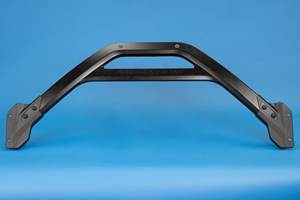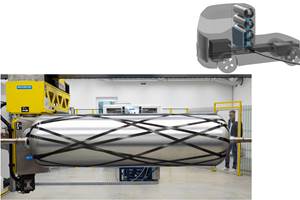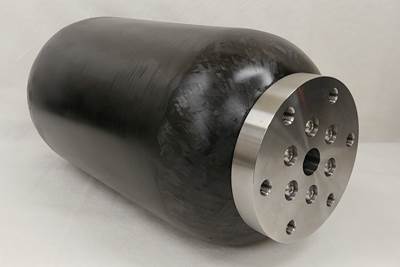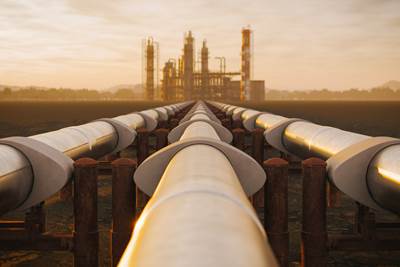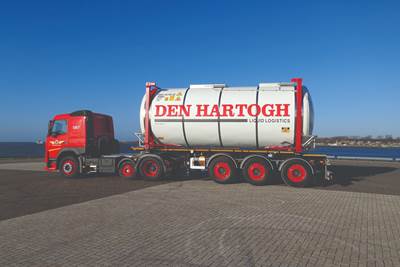Omni Tank composite road tanker boosts payload capacity
Australian composites innovator launches a triple road-train tanker with highly specialized Mold-in-Baffles and CFRP tanks to offer stronger, safer and more economic liquid transport for the mineral processing industry.
Australian composite materials innovator Omni Tanker (Smeaton Grange), in collaboration with Mick Murray Welding (Garbutt), has launched what it claims is a world-first composite triple road train for carrying chemical liquids. Thanks to its carbon fiber construction, the train is able to move almost 100 tonnes of payload in a single run — a 15% payload increase from current stainless steel tank counterparts, enabling a reduction in the number of trips and associated emissions — while significantly reducing operational costs for its customer Townsville Logistics (Queensland, Australia).
“Omni Tanker is combining advanced manufacturing technology with aerospace materials and heavy-duty trailers to deliver game-changing liquid payloads for the critical minerals processing industry — right here in Australia,” CEO and founder of Omni Tanker, Daniel Rodgers, says. “Mick Murray Welding was crucial in achieving project success for our first product in the mining sector. They knew what the mining industry demanded, and they knew the harsh operating conditions they operate in, so it made absolute sense to combine Omni Tanker’s lightweight tanks with their high-tensile steel-skeletal trailers.”
Road transport of chemicals is a demanding industry that requires proven materials. The Omni Tanks used on the triple road trains were required to contain baffles inside, as a safety feature to mitigate sloshing of fluids, and to meet dangerous goods transport tank regulation requirements.
Omni Tanker produced composite tanks using the strength and light weight of carbon fiber, combined with the chemical resistance of specialty thermoplastic liners using the company’s patented technology. Key to this process is the connection of thermosets to thermoplastics — in this case joining the carbon fiber-reinforced polymer (CFRP) tank structure with a polyethylene thermoplastic liner. The liner enables the transport of high-purity chemicals without contamination, as well as Class 8 dangerous goods, protecting the structural tank.
Omni Tanker also employed advanced composite materials and engineering practices for the development of Mold-in-Baffles, highly specialized to better manage the movement of fluid (surge) in the road tankers, which enhances safety. Based on a molding process that produces the internal baffle at the same time as the lining of the tank, there are no seams or joins associated with the baffle joining the tank wall, according to Omni Tank. As a result, the interior lining of the tank is weld-free.
A large amount of applied research and development was also made under a Global Innovation Linkage (GIL) grant project which commenced in 2019.
The Mold-in-Baffle principle, conceptualized five years ago, is now an important part of Omni Tanker’s innovation portfolio. Type approval of these structures has been granted, with unit builds completed for Australian road trains in late 2022, followed by first type approval for European Swap Tanks under the European ADR (Road) and RID (Rail) in early 2023. The technology is set to enter service in the Australian market, as well as export markets including North America and Europe.
Three triple road train sets have now been delivered to Townsville Logistics for use in heavy acid transport across Northern Australia, with greater payload capacity meaning fewer trips, as well as associated cost and environmental benefits.
Omni Tanker, which began exports in 2016, believes there is vast international potential for this breakthrough solution. “This was our first build with Mick Murray Welding for Townsville Logistics and really, it’s the first build of its type in the world,” Rodgers contends.
In addition to the benefits mentioned above, the triple road train project also helped Omni Tank’s customer, Townsville Logistics, tackle environmental and emissions targets while boosting bottom lines.
Sun Metals Corp. and Townsville Logistics are local subsidiaries of South Korea’s Korea Zinc. (Seoul), one of the largest base metals producer. Sun Metals has set ambitious decarbonization targets. In addition to being the first in the world to produce “green zinc,” it aims to be 100% renewable energy-powered by 2040 at its Townsville site, where it makes high-grade zinc metals, as well as secondary products including sulfuric acid and copper cake.
Its sister company Townsville Logistics is working on a number of major initiatives to reduce the emissions footprint from its operations and sought to significantly increase the payload for its tank trailers used to transport heavy sulfuric acid. Operating at a maximum allowable vehicle weight, the way to increase net payload transported — and cut down on trips and associated emissions — was to reduce the tare weight of equipment.
Additional project contributors include the University of NSW, Sydney (UNSW). Together, Omni Tanker and UNSW have worked on projects for fiber optics for structural health monitoring of tanks and adopting nanomaterials to address microcracking in liquid hydrogen storage tanks for space.
A large amount of applied research and development was also made under a Global Innovation Linkage (GIL) grant project which commenced in 2019. Within the GIL project, Omni Tanker undertook design, prototype testing and certification of its Mold-in-Baffle structures. UNSW employed a postdoctoral researcher for modeling production processes and surge in service.
Related Content
Jeep all-composite roof receivers achieve steel performance at low mass
Ultrashort carbon fiber/PPA replaces steel on rooftop brackets to hold Jeep soft tops, hardtops.
Read MoreAutomotive chassis components lighten up with composites
Composite and hybrid components reduce mass, increase functionality on electric and conventional passenger vehicles.
Read MoreCryo-compressed hydrogen, the best solution for storage and refueling stations?
Cryomotive’s CRYOGAS solution claims the highest storage density, lowest refueling cost and widest operating range without H2 losses while using one-fifth the carbon fiber required in compressed gas tanks.
Read MoreThermoplastic composites: Cracking the horizontal body panel nut
Versatile sandwich panel technology solves decades-long exterior automotive challenge.
Read MoreRead Next
Lockheed Martin Australia and Omni Tanker develop new composite tanks for cryogenic fuels
Partnership aims to commercialize Type IV and V tanks using patented OmniBIND technology for Lockheed Martin and NASA applications.
Read MoreNew ASTM plastic piping systems standard to aid fluid and gas transport
New standard for crosslinkable polyethylene pipe will enable the transport of aggressive fluids at elevated temperatures across a range of manufacturers and businesses.
Read MoreComposite tanks best stainless steel over road, rail and sea
One-piece, filament wound containers cost less, hold more, last longer.
Read More

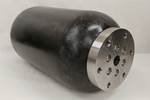

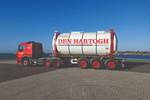
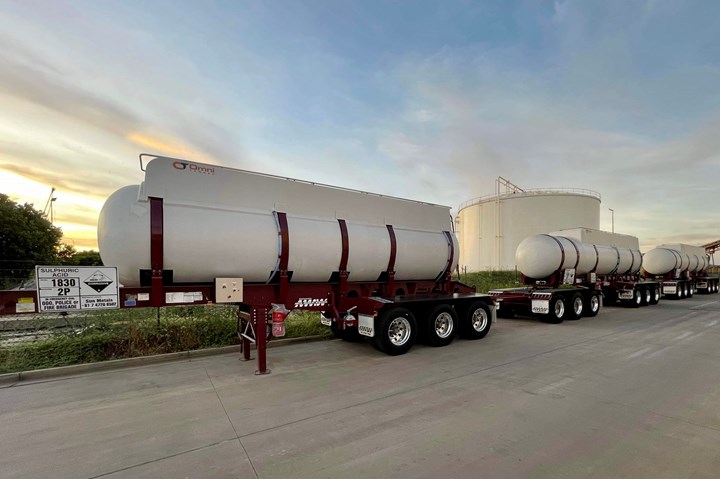






.jpg;maxWidth=300;quality=90)






